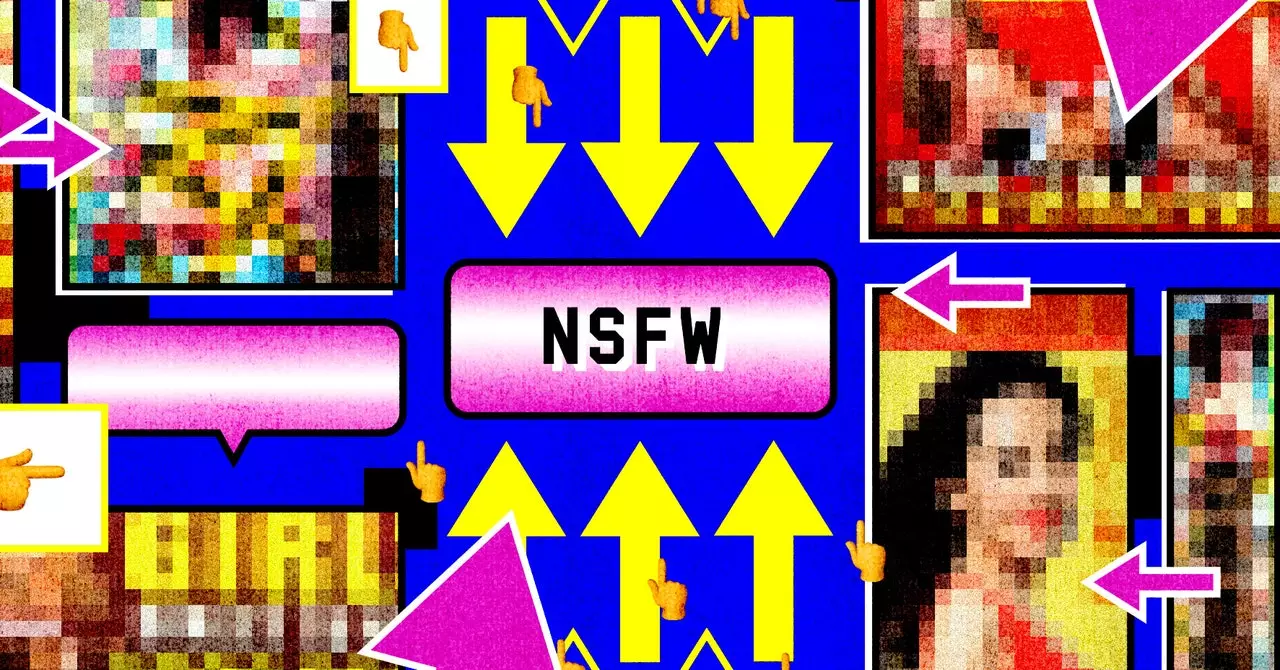The world of artificial intelligence (AI) is constantly expanding, and with it comes a plethora of new possibilities. However, a recent review conducted by WIRED has shed light on a disturbing trend in AI advertising. According to Meta’s ad library, there were approximately 3,000 ads for “AI girlfriends” and 1,100 ads containing “NSFW” (not safe for work) content live on April 23. These ads were found across various Meta platforms, promoting apps like Hush and Rosytalk that offer questionable services.
WIRED’s investigation revealed that the AI girlfriend app Hush, which has been downloaded over 100,000 times from Google’s Play store, had published 1,700 ads on Meta platforms. These ads promised “NSFW” chats and “secret photos” from lifelike female characters, anime women, and even cartoon animals. One particularly disturbing ad depicted an AI woman in medieval prison stocks, pleading, “Help me, I will do anything for you.” Targeted at men aged 18 to 65, these ads exploit the vulnerability of their audience by offering salacious content.
The Exploitative Nature of AI Girlfriend Apps
Rosytalk, another AI companion app, was found to have run 980 ads on Meta platforms that promised around-the-clock chats with AI-generated women who appeared very young. Tags like “#barelylegal,” “#goodgirls,” and “teens” were used to attract users to these questionable services. Despite Meta’s advertising standards, these ads managed to slip through the cracks, with some already being removed. The notion of “undressing” AI girlfriends and downloading images is deeply troubling and raises ethical concerns about the exploitation of AI technology.
While some users of AI companions claim that these apps help combat loneliness and provide emotional support, the dark side of these services cannot be ignored. Carolina Are, an innovation fellow researching social media censorship, draws a parallel between AI girlfriend apps and human sex workers. She points out that sex workers cater to similar needs and desires but face more stringent restrictions on advertising compared to AI companies. Are emphasizes the personalized nature of interactions with sex workers, contrasting it with the superficiality of AI girlfriends.
One of the concerning aspects of AI girlfriend apps is the lack of transparency around their development. Limited information is available about the underlying algorithms that power these apps, raising questions about the ethics of their creation. Some apps use names like Sora, potentially hinting at connections to established AI technologies like OpenAI’s video generator. The mysterious nature of these apps adds to the unease surrounding their proliferation on social media platforms.
The rise of AI girlfriend apps raises serious concerns about the exploitation of technology for questionable purposes. While some users may find solace in these virtual companions, the broader implications of promoting unrealistic and potentially harmful relationships with AI need to be addressed. As technology continues to advance, it is crucial to uphold ethical standards and ensure that AI is used responsibly for the betterment of society.


Leave a Reply